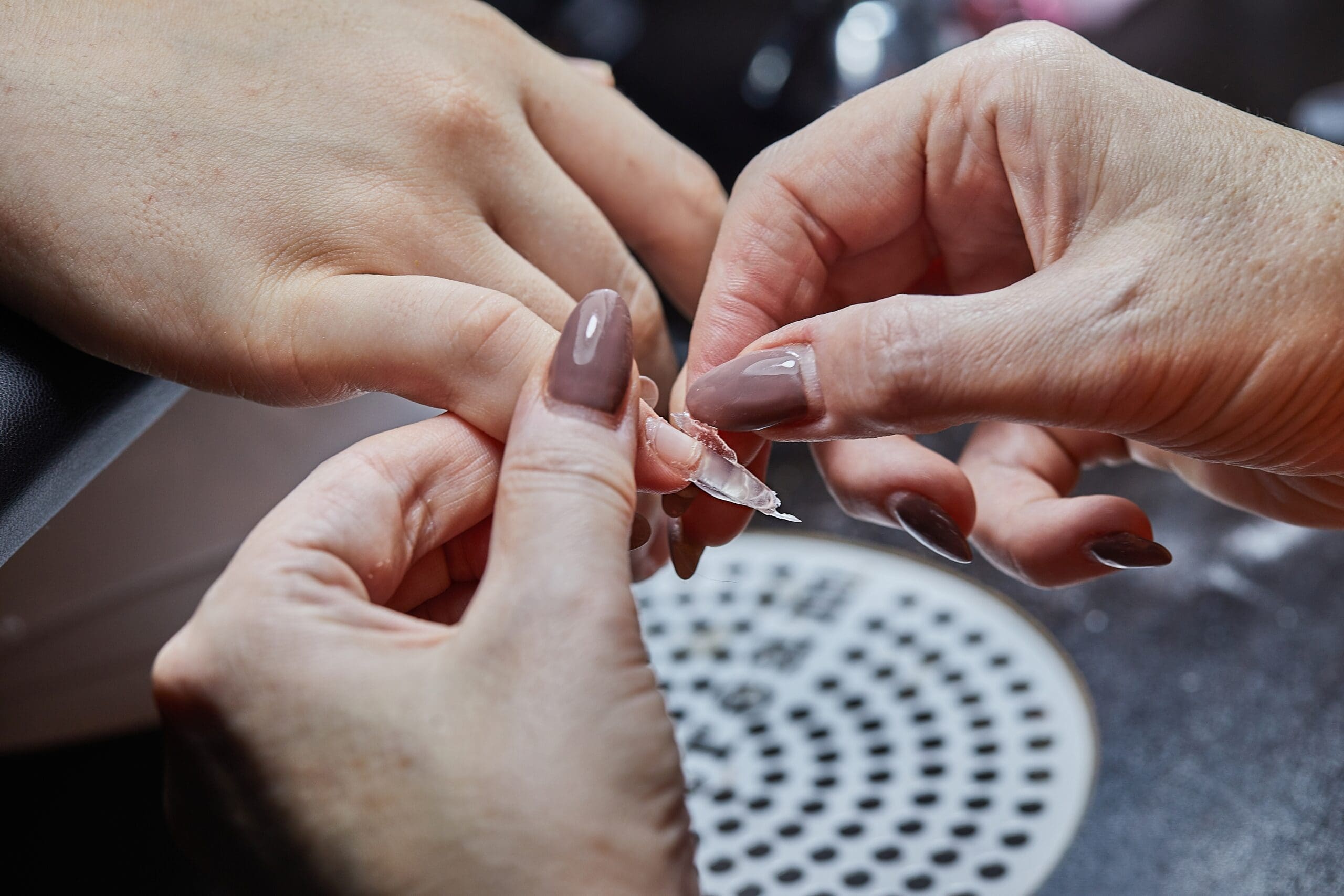What qualifications do I need to be a Nail Technician?
Everything you need to know about qualifications to become a Nail Technician
Are you passionate about beauty and looking for a rewarding career that allows you to express your creativity? Becoming a nail technician might be the perfect path for you. This vibrant profession offers the opportunity to turn your love for nail art into a successful career.
As a nail technician, you’ll not only master the art of creating stunning designs but also build lasting relationships with clients who trust your expertise to make them feel their best. With the beauty industry continually growing, there’s never been a better time to dive into this exciting field and explore the endless possibilities it offers. Whether you’re interested in working in a salon, opening your own business, or even freelancing, becoming a skilled nail technician can open doors to numerous opportunities and personal fulfilment.
In this Nail Technician qualifications guide
Qualifications to be a Nail Technician
In today’s beauty-driven world, becoming a nail technician offers a rewarding career path filled with creativity and client interaction. If you’re considering this profession, understanding the qualifications required is crucial to setting yourself apart in a competitive industry. Nail technicians are more than just artists; they are skilled professionals who require a blend of technical knowledge and practical skills.
To start your journey as a nail technician, you’ll need to acquire specific qualifications that ensure you can provide safe and high-quality services. This often begins with enrolling in accredited courses or obtaining diplomas that cover essential topics such as nail anatomy, hygiene standards, and various manicure techniques. These courses not only equip you with the necessary skills but also prepare you for any challenges you might face in the salon environment.
Moreover, gaining recognised certifications can significantly boost your credibility and open doors to numerous opportunities within the beauty sector. It’s important to stay updated on industry trends and continuously refine your craft through additional training or workshops. By doing so, you’ll not only enhance your expertise but also maintain the trust of your clients who rely on your professional judgement for their nail care needs.
Ultimately, investing time in acquiring the right qualifications is an indispensable step towards building a successful career as a nail technician. With dedication and passion for beauty treatments, you can transform this skill into an exciting profession that brings joy to both yourself and those you serve.
What qualifications are needed to be a Nail Technician?
Becoming a nail technician in the UK is an exciting career path that offers creativity and personal interaction. To excel in this field, specific qualifications are required, each offering unique roles and responsibilities.
Level 2 Nail Technician Qualifications
Starting with Level 2, this qualification serves as the foundation for any aspiring nail technician. It covers essential skills such as basic manicure and pedicure techniques, health and safety practices, and customer service skills. At this level, technicians can work in salons or spas under supervision, focusing on providing standard nail care services.
Level 3 Nail Technician Qualifications
Level 3 builds upon these basics by introducing more advanced techniques such as acrylics, gel nails, and intricate nail art designs. This level often includes training in client consultation to assess individual needs effectively. With a Level 3 qualification, technicians can take on more responsibility within a salon setting or even begin working independently.
Level 4 Nail Technician Qualifications
Finally, Level 4 represents the pinnacle of professional development for nail technicians. This advanced qualification delves into specialised areas like laser treatments for nails or managing a salon business. At this stage, professionals are equipped to handle complex client requests and may also train others or manage their own businesses.
Each level offers distinct opportunities to enhance your skills and expand your career possibilities within the dynamic beauty industry. By progressing through these qualifications, you position yourself as an expert capable of delivering exceptional service to clients while enjoying a fulfilling career path.

Professional bodies for a Nail Technician
Joining a professional body as a nail technician can significantly enhance your career, offering numerous benefits that can set you apart in this competitive industry. These organisations provide invaluable resources, networking opportunities, and the latest industry insights that keep you at the forefront of your craft.
One such esteemed organisation is the Association of Nail Technicians (ANT), which offers members access to exclusive workshops and seminars aimed at honing their skills and expanding their knowledge. Membership also provides recognition within the industry, showcasing your commitment to maintaining high standards.
Another notable body is The Beauty Guild, which supports nail technicians with comprehensive insurance options tailored specifically to beauty professionals. This not only ensures peace of mind but also demonstrates professionalism to clients.
By joining these professional bodies, you gain credibility and trustworthiness in the eyes of potential clients and employers alike. Furthermore, they offer a platform for continuous learning and development – crucial for staying updated with emerging trends and techniques in nail artistry.
Becoming part of a professional body is more than just an investment in your career; it’s a step towards achieving excellence in your field. It opens doors to new opportunities while providing support every step of the way on your journey as a successful nail technician.
Training fees to become a Nail Technician
When considering a career as a Nail Technician, understanding the costs associated with training is crucial. The journey through the various levels of qualification – Level 2, Level 3, and Level 4 – comes with its own set of fees that reflect the depth and breadth of knowledge you’ll acquire.
At Level 2, you can expect to pay anywhere from £500 to £1,000. This introductory level covers essential skills such as basic manicure and pedicure techniques, nail art application, and health and safety practices. It’s a foundational step that sets you up for more advanced learning.
Progressing to Level 3 involves more specialised training in advanced nail techniques, including acrylics and gel applications. The fees for this level typically range between £1,000 and £2,500. This stage not only enhances your technical abilities but also prepares you for more complex client needs.
Finally, reaching Level 4 signifies an expert understanding of nail technology and often includes business management aspects tailored for those looking to open their own salon or advance into teaching roles. Training fees at this level can vary from £2,500 to upwards of £5,000 due to the comprehensive nature of the curriculum.
Investing in these courses is not merely about obtaining certificates; it’s about equipping yourself with the skills needed to thrive in a competitive industry. While prices may vary depending on location and institution quality, each level offers invaluable expertise that will bolster your career prospects significantly.

Getting experience to be a Nail Technician
Becoming a successful nail technician requires more than just a passion for nail art; it demands hands-on experience and continuous learning. One of the most effective ways to gain this experience is by enrolling in a comprehensive training course. These courses, often offered by reputable beauty schools, provide you with the essential skills and knowledge needed to excel in the industry. You’ll learn everything from basic manicure techniques to advanced nail art designs, ensuring you’re well-prepared for any client request.
Another excellent way to build your experience is through internships or apprenticeships at established salons. Working alongside seasoned professionals not only allows you to refine your technique but also provides insight into customer service and business operations within a salon environment. This real-world exposure is invaluable as it prepares you for the day-to-day challenges of being a nail technician.
Additionally, attending workshops and industry events can significantly enhance your skill set. These gatherings are perfect opportunities to network with other professionals, learn about the latest trends and products, and even showcase your work. By actively participating in such events, you’ll stay ahead of industry developments while building a reputation as an informed and skilled technician.
Finally, practising on friends or family can be an informal yet effective way to hone your abilities before entering the professional world. Offering complimentary services not only builds confidence but also helps create a portfolio that showcases your work when applying for jobs or attracting new clients.
In summary, gaining experience as a nail technician involves formal education, practical salon exposure, active participation in industry events, and consistent practice. By investing time in these areas, you’ll be well-equipped to carve out a successful career in this vibrant field.



